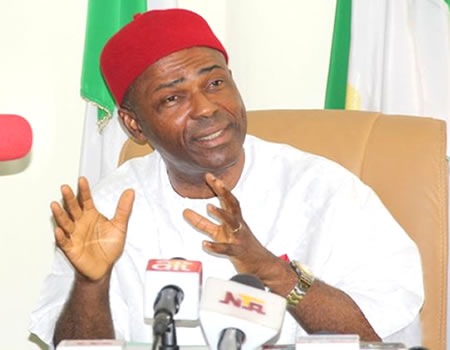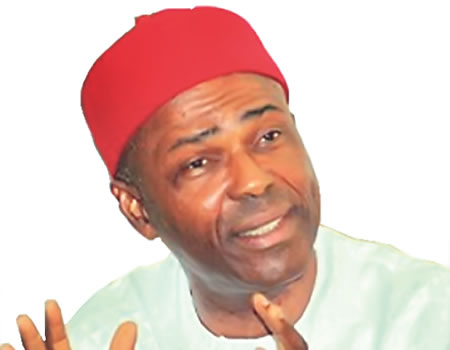
THE Federal Government has said that the quest for sustainable development would be a mirage without deliberate efforts to rebuild the nation’s infrastructure.
Minister of Science and Technology, Dr Ogbonnaya Onu, who said this at 2018 Nigerian Building and Road Research Institute (NBRRI) International Conference held in Abuja, noted that this underscored the priority given by the current administration to infrastructural development.
Onu said considering the dilapidation of roads across the country and shortage of housing, enormous resources were being committed in that direction.
He stressed further that the current administration under President Muhammadu Buhari was determined to ensure that Nigerians, both the rich and the poor, old and young, enjoyed decent houses for schools, hospitals, as well as offices and markets.
According to him, “we need decent houses for our citizens. We need roads connecting our numerous cities, our rural areas and those leading from urban to rural areas.
ALSO READ: Innovation, entrepreneurial skills in building industry, challenges to young professionals —Awobodu
“We also need roads to our farms, our homes, our schools, our markets and places of relaxation and entertainment. This is very important in getting Nigerians to know the various parts of the country and hence help promote national unity and stability,” he said.
The minister said his ministry would give the Nigerian Building and Road Research Institute (NBRRI) enough support in its quest to embark on the necessary research and innovation needed to help build high quality and less expensive roads and houses in the country.
Dr Onu said this could only be achieved, however, through intensifying research on the use of locally available materials for the construction of both roads and houses in Nigeria.
Earlier in his presentation, tagged: “Building and Road Infrastructure as Tools for Environmentally Sustainable Development in Nigeria,” the Director-General/Chief Executive Officer (CEO) of NBRRI, Professor Danladi Matawal said the built environment could catalyze opportunities for a wide array of global and local challenges including climate change, land use, demographic shifts, as well as water and other resource scarcities.
He alerted that about two billion additional urban inhabitants are expected by 2030, the majority of whom would be in the rapidly growing cities of Africa, Asia and Latin America, saying with this rapid growth comes an urgent need for sustainable building and construction and through the integrated, global approach support of United Nation and other country programmes, building could improve the social, environmental and economic performance of cities, region and nations.






